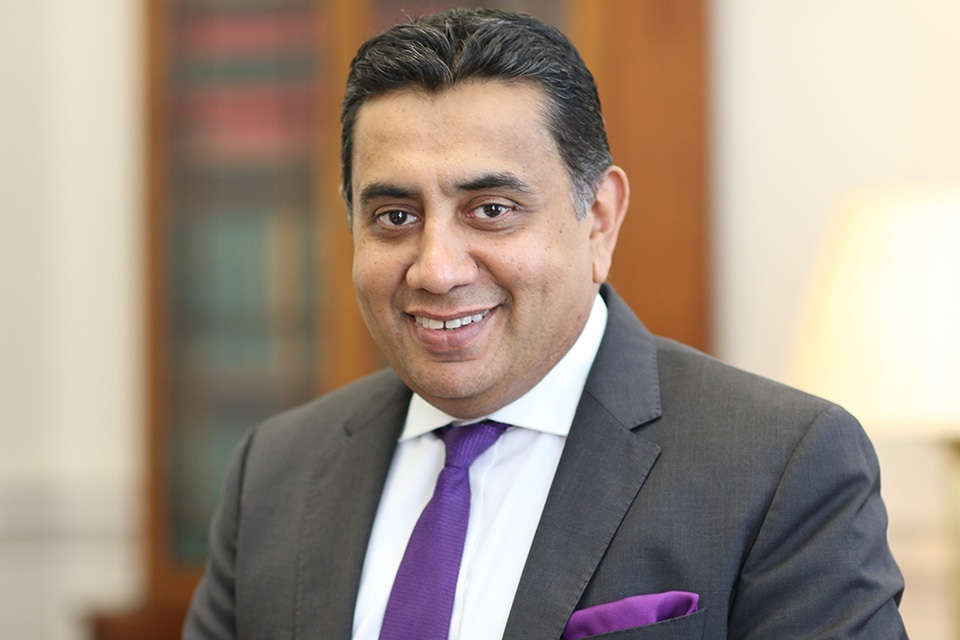UN Human Rights Council 46: UK Closing Statement
Lord Ahmad of Wimbledon welcomes conclusions of the 46th Session of the UN Human Rights Council.

The UN Human Rights Council concluded its 46th session on Thursday, adopting important resolutions on Sri Lanka, South Sudan, Syria, Iran, Myanmar, Belarus and Georgia, among many other pressing issues.
At the start of the session, the Foreign Secretary delivered the UK national statement, in which he set out our serious concerns on the deteriorating human rights situation in China, including systematic human rights violations perpetrated against Uyghur Muslims and other minorities in Xinjiang, the restrictions of personal freedoms in Hong Kong, and the continuing restrictions in Tibet. On Monday the UK, alongside the EU, Canada and the US, announced sanctions against officials and an entity identified as directly involved in the human rights violations in Xinjiang. We are committed to taking action. I reiterate the Foreign Secretary’s call for the High Commissioner, or another independent expert, to be given urgent and unfettered access to Xinjiang.
I welcome the adoption of the resolution on Sri Lanka. This signals the international community’s continued commitment to post-conflict justice and accountability. It also responds to the deeply concerning report by the High Commissioner who warned that Sri Lanka risked returning to the grave violations of the past. It is therefore right that the UN should continue its monitoring and collect evidence to support future accountability processes. I call on Sri Lanka to make meaningful progress on justice, accountability and human rights, and reiterate the UK’s readiness to support these efforts. The UK stands ready to engage constructively in this respect.
I welcome the Council’s adoption of a resolution on the human rights situation in South Sudan, reflecting ongoing concern at issues such as widespread sexual and gender-based violence, humanitarian access limits, and human rights violations and abuses against children. I also welcome the Transitional Government of National Unity’s commitment to address these challenges as South Sudan approaches ten years of independence. In a spirit of partnership we call on South Sudan to continue its cooperation with the Commission on Human Rights in South Sudan and remain committed to working together to help end suffering of ordinary South Sudanese.
I am also pleased that the Council has again adopted the resolution on Syria. This month marks ten years since the conflict started. The resolution highlights the Commission of Inquiry’s latest findings and confirms a decade of appalling atrocities in Syria. Syria remains one of the worst human rights crises in the world. The Syrian regime’s use of enforced disappearance, torture and sexual violence is deplorable. It is right that the resolution mandates the Commission to continue assessing the human rights concerns. We must not forget the plight of the Syrian people.
I welcome the renewal of the mandate for the Special Rapporteur on Human Rights in Iran. This is an important signal that the international community remains deeply concerned about the human rights situation and I urge Iran to grant the Special Rapporteur immediate access to the country, so that he can properly fulfil his mandate. The UK remains particularly concerned by the continued targeting of groups from human rights defenders and journalists, to ethnic and religious minorities and dual and foreign nationals, including Nazanin Zaghari-Ratcliffe, Anoosheh Ashoori, and Morad Tahbaz.
The UK remains deeply concerned by the wide range of human rights violations and abuses in Myanmar. Peaceful protests are suppressed violently, arbitrary arrests continue, freedoms are inhibited, and the military shows no sign of deescalating the situation. We stand with the people of Myanmar. Their wishes, and the result of the November 2020 General Election, must be respected, and I welcome the adoption of the resolution by consensus, reflecting the strength of the international community’s condemnation of the military’s actions.
The UK remains committed to a two state solution which ends the Israeli-Palestine conflict, delivering a secure Israel and self-determination for the Palestinian people. We continue to be concerned by the Council’s disproportionate focus on Israel, which is a barrier to dialogue and hardens positions. We support justified scrutiny of Israel and the Occupied Palestinian Territories, and welcomed the tabling of one resolution under Item 2, although ultimately this was not sufficiently balanced to support. We will continue to raise concerns about Israel’s actions when warranted.
I also welcome the renewal of the mandates of the Special Rapporteur on the human rights situation in the DPRK, the Independent Expert for Mali and the adoption of the resolution on torture. I am also pleased that the Council adopted a resolution on the promotion and protection of human rights in Nicaragua, the technical co-operation with Georgia and the situation of human rights in Belarus in the run up to the 2020 presidential election and its aftermath.
The Human Rights Council continues to be the best tool the international community has to address human rights violations and abuses and to advance many of our international goals. We are honoured to have been elected to serve a further term from 2021 to 2023 and the UK continues to deliver on all our pledges including our pledge to promote girls’ education. We were pleased to partner with the UAE on a joint statement this session, confirming our shared commitment to work with all states across all regions, to deliver a Human Rights Council resolution on girls’ education this summer.